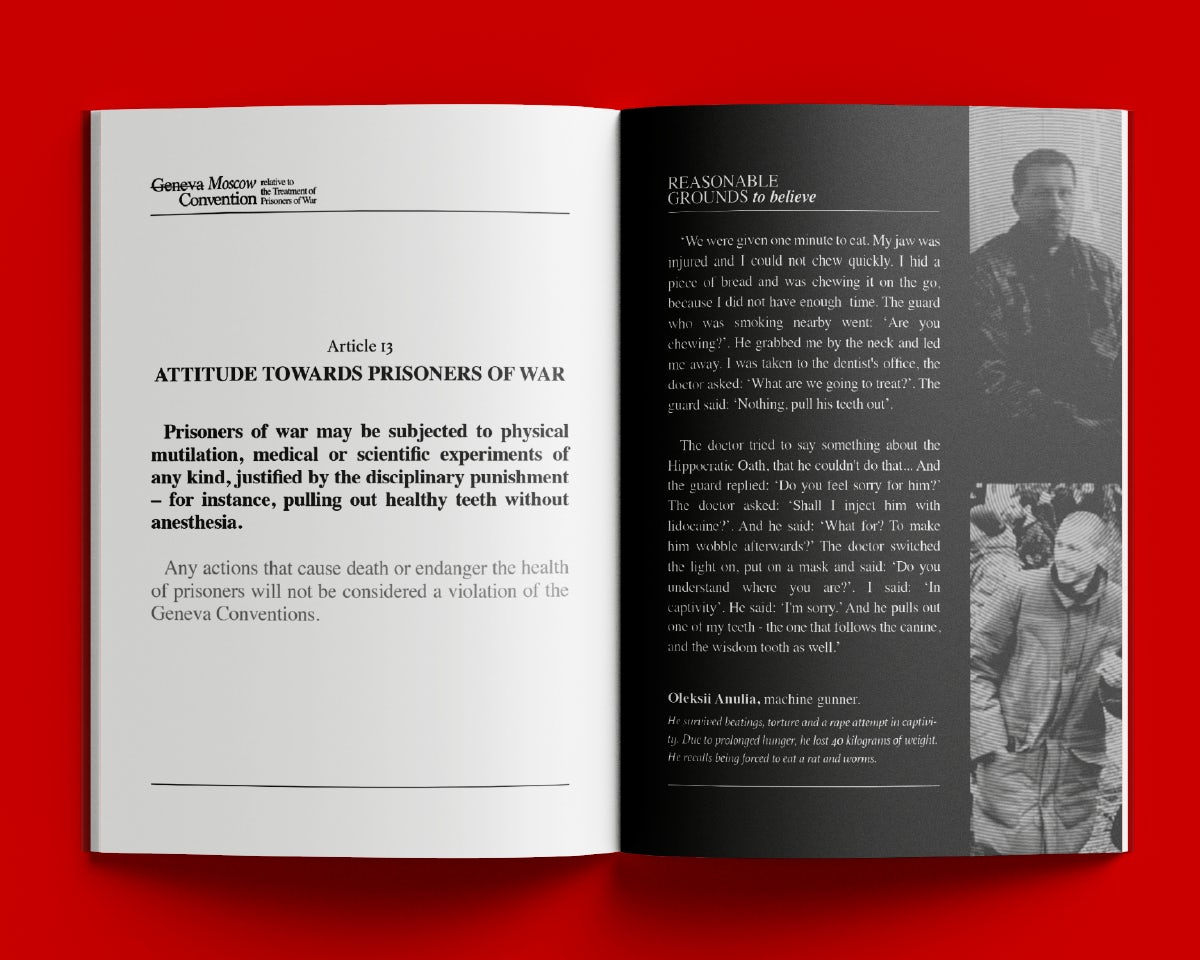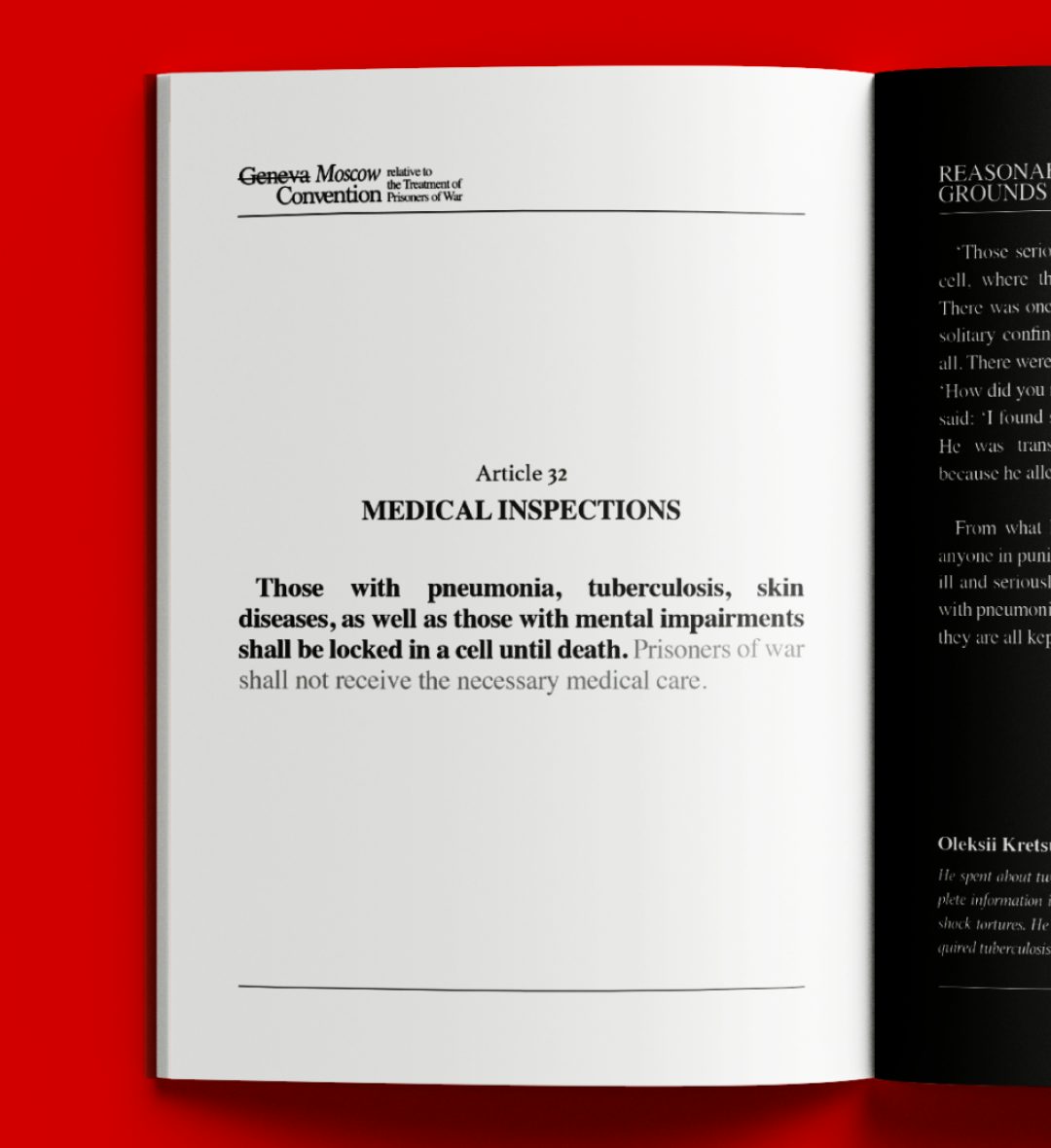Kyiv-based Banda agency unveils Moscow Conventions
Families of Ukrainian prisoners held by Russia worked with creative agency Banda to publish an alternative version of the Geneva Conventions, rebuking the inaction of international organisations
Retitled as the Moscow Conventions, the structure of the reworked document follows that of the original, but its articles – based on real testimonies of former prisoners and their relatives – reference a new set of norms, such as the torture, psychological and physical abuse, and killing of its prisoners of war.
The intention of the project, say Kyiv agency Banda, is to remind the world of the numerous treaty violations (namely of the Third Geneva Convention and the First Additional Protocol) and crimes against humanity currently being committed by the Russian state. Banda and the Association of Families of Azovstal Defenders worked with experts from the Media Initiative for Human Rights on the texts.


“The main document protecting the rights of captured soldiers is the Geneva Conventions, but if you look at the text, you’ll find – literally – an example for each article proving how Russia violates it,” says Maksim Boritko, creative director at Banda.
“International organisations like the International Committee of the Red Cross (ICRC) and the UN seem to be fine with this — they do not publicly condemn such actions. So while the world remains silent, Russia sets its own rules.”

Boritko says that it was vital that the agency maintain the formal tone of the original document while presenting the real testimonies of people in Russian captivity: “We wanted it to be disturbing to read. But when we turned the first testimony into a legal-style article, it felt deeply uncomfortable, both because of the account itself and the realisation that the world quietly accepts this.”
Banda also included “evidence” next to each article: real people’s stories with photographs and names. The overall design approach is pared-back and subdued but, says Olya Severynova, a visual artist at Banda, also full of meaning.

“We watched documentary footage, searched through archival materials, and analysed a lot of information,” she says of the preparation that went into the document’s creation.
“The original convention isn’t about artistic design; the document had a strict, official appearance. We wanted to preserve that restraint. But even the cover carried meaning. We intentionally kept the colour palette subdued: black, white, and grey dominate, with red accents.”

While the front and back covers of the Moscow Conventions resemble old cardboard folders used for storing criminal case files, inside the design has a formal neutrality. “We retained the original numbering and titles,” says Severynova, “but the content opens the eyes of those who ignore reality.”
Physical copies of the Moscow Conventions will be distributed to political leaders and ambassadors of various countries, while Banda hopes that in using the language of international law, the campaign can speak to representatives of the ICRC, the UN and human rights commissioners worldwide.
The online version of the document can be viewed as a PDF at moscowconvention.com. Campaign materials are also available to download from the website.
Credits:
Creative Agency: Banda
Creative Director: Maksim Boritko
Communications Manager: Bohdana Sazhenytsia
Copywriter: Yuriy Somov
Visual Artists: Olya Severynova, Oleh Didorenko
Association of Azovstal Defenders’ Families: Kateryna Prokopenko; Yevhenia Synelnyk; Valeria Dolya










